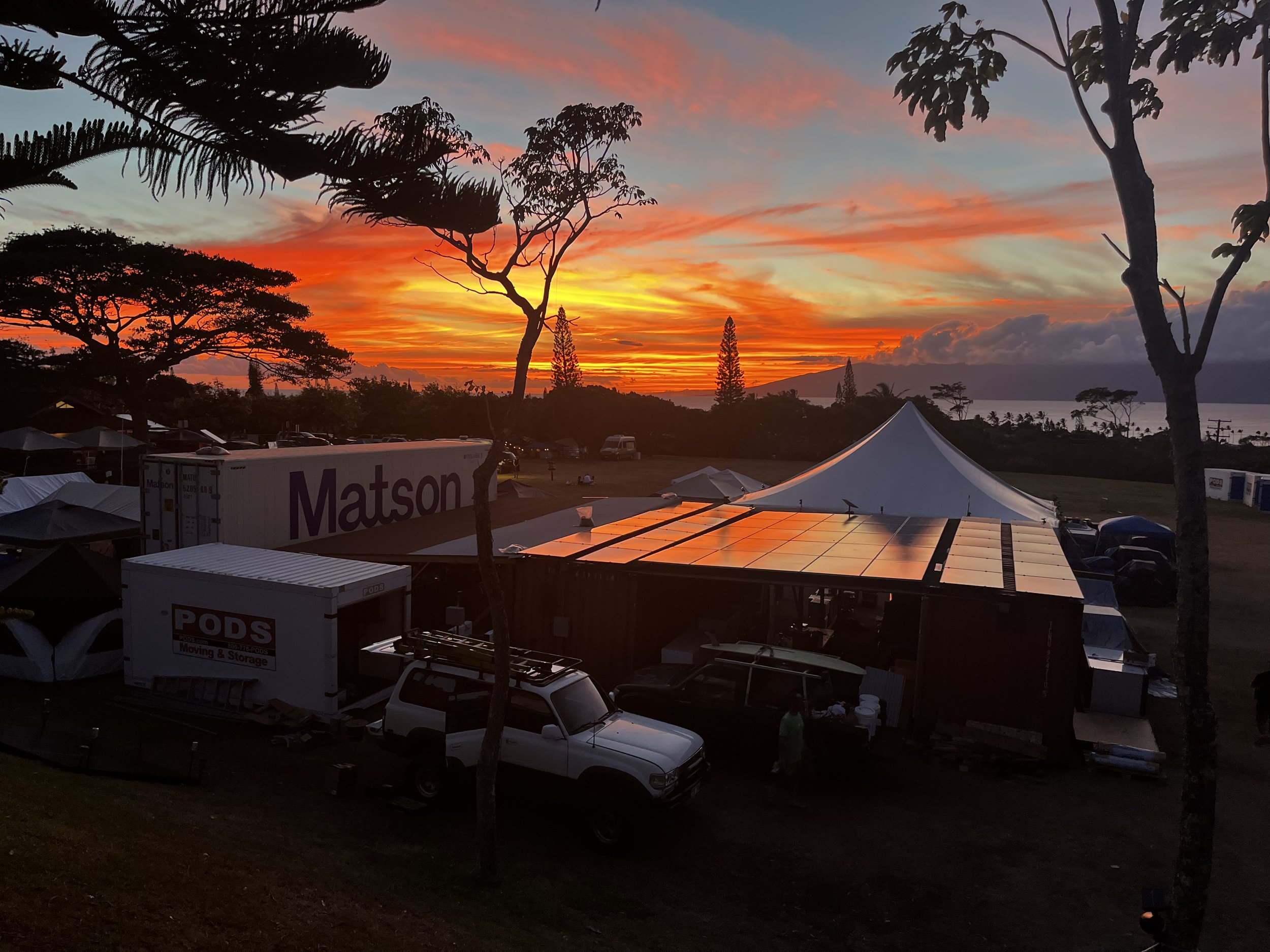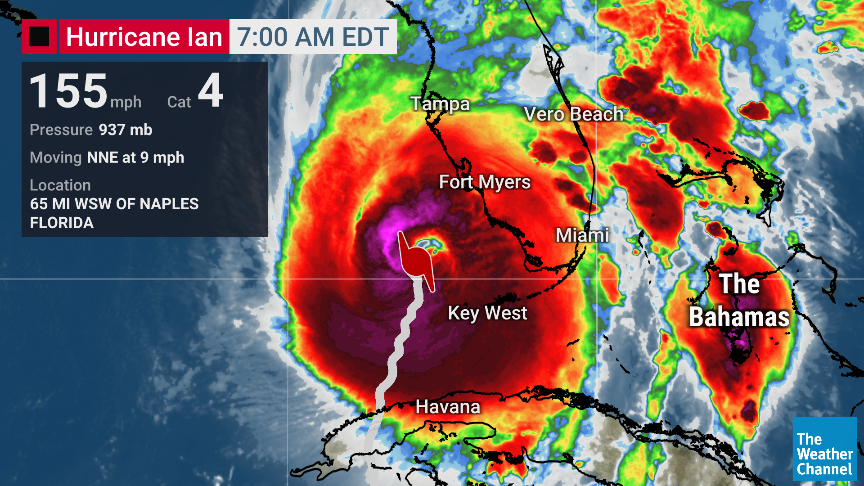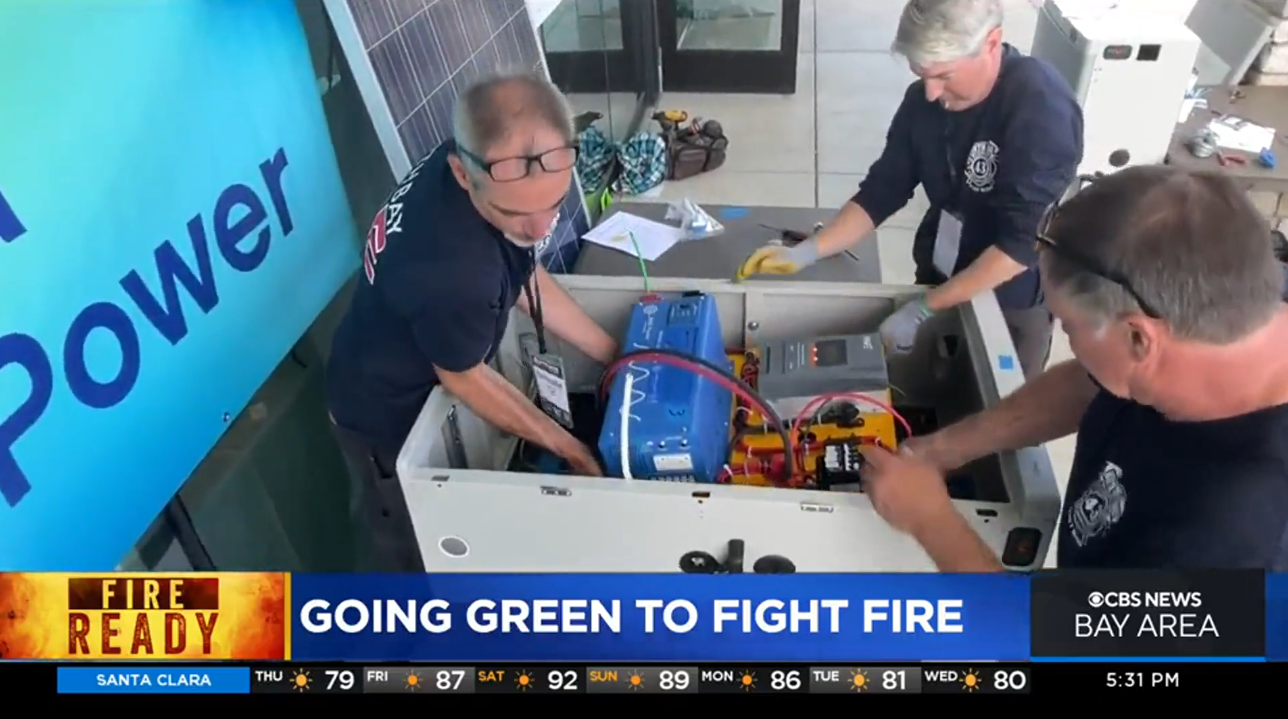Setting up refrigeration in Houma, LA after Hurricane Ida
Disasters exacerbate disparities. From Hurricane Katrina to the pandemic to Hurricane Ida, food insecurity is perpetuated by New Orleans’ high rates of poverty and vulnerability to extreme weather events.
Community coolers are critical to local food systems, storing thousands of pounds of food each year. In blue sky seasons, they create livelihoods for farmers going to local markets, and are relied upon by low and no-income community members for basic food security. In gray sky events, when the electrical grid is disrupted, these coolers become even more essential for food and medicine storage, but require gas generators to stay running, which is unsustainable and unhealthy.
Packing and storing fresh produce in the community cooler at Press Street Gardens
Sprout NOLA’s community cooler at Press Street Gardens
Footprint Project, with support from Elevance Health Foundation, the philanthropic arm of Elevance Health, is partnering with Culture Aid NOLA, Sprout NOLA, and the New Orleans Community Fridges to provide solar + battery solutions for local community coolers. The Healthier Power initiative will ensure that pillars of the food security community remain resilient through disaster power outages, eliminating both food waste and greenhouse gas emissions.
"The partnership with Footprint Project gives Culture Aid NOLA relief going into summer months and hurricane season,” said Ellie Duff, Executive Director of Culture Aid NOLA. A non-traditional food bank serving free food in New Orleans, Culture Aid NOLA’s mission is to direct no-barrier, no-stigma food aid to underserved members of New Orleans' cultural community with dignity, grace and hospitality. They provide twice-weekly free groceries with no identification required, no proof of income required, and no questions asked.
Footprint Project demonstrating portable solar + battery packs with Culture Aid NOLA // Photo by Culture Aid NOLA
“Working through blue and gray skies, it is crucial for us to have access to temperature regulated coolers to store food and access to power to continue operating on site,” said Duff. “We are thrilled to partner with Footprint Project to ensure that Culture Aid NOLA can continue serving free food while keeping families comfortable and food fresh."
Footprint Project is providing Culture Aid NOLA with portable batteries to enhance their on-site food distribution power needs. We are also providing access to our mobile solar cooler trailer for cold storage of excess food donations, eliminating food waste and expanding meals provided to the community.
"Cold storage is so key to hurricane recovery – we're thrilled to be able to provide a cool spot for our local food system in times of need,” said Marguerite Green, Producers and Sustainability Director of Sprout NOLA. Sprout NOLA supports established and developing small-scale and sustainable farmers, community gardeners, and farm workers in Louisiana with technical and social support to build a stronger, more equipped community of growers in Louisiana and help all New Orleanians be part of a community food system.
Solar installation for Sprout’s community cooler at Press Street Gardens
“Farmers are key to post-storm recovery, both as impacted people and disaster response partners,” said Green. “By getting our community cooler on solar, we're able to meet the needs of farmers looking to harvest early when a storm is coming so a crop has a chance of making it. We're also able to distribute fresh food after the dust has settled. This cooler has always been a community space, but now it will be here in all kinds of weather.”
Our team recently finished installation of solar + battery backup power for Sprout’s large community cooler at Press Street Gardens, an urban farm and outdoor learning lab serving local farmers, culinary students, and the public in New Orleans.
“As an organization, we are committed to strengthening our communities, many of which are severely impacted each year by some type of natural disaster,” said Lance Chrisman, President of Elevance Health Foundation. “Through expanding our community resiliency and disaster relief grants, we’re able to make a greater impact in the communities we serve before, during and after disaster strikes. With help from our partners, we’re continuing to work on measurably improving disaster preparedness, response, and recovery efforts throughout the country.”
We are grateful to all of our implementation partners, Elevance Health Foundation, and LONGi for donating solar panels. Next up: community fridges and a mobile cooler trailer partnership with a Community Lighthouse at Bethlehem Lutheran Church. Stay tuned for more updates on the Healthier Power initiative!



















